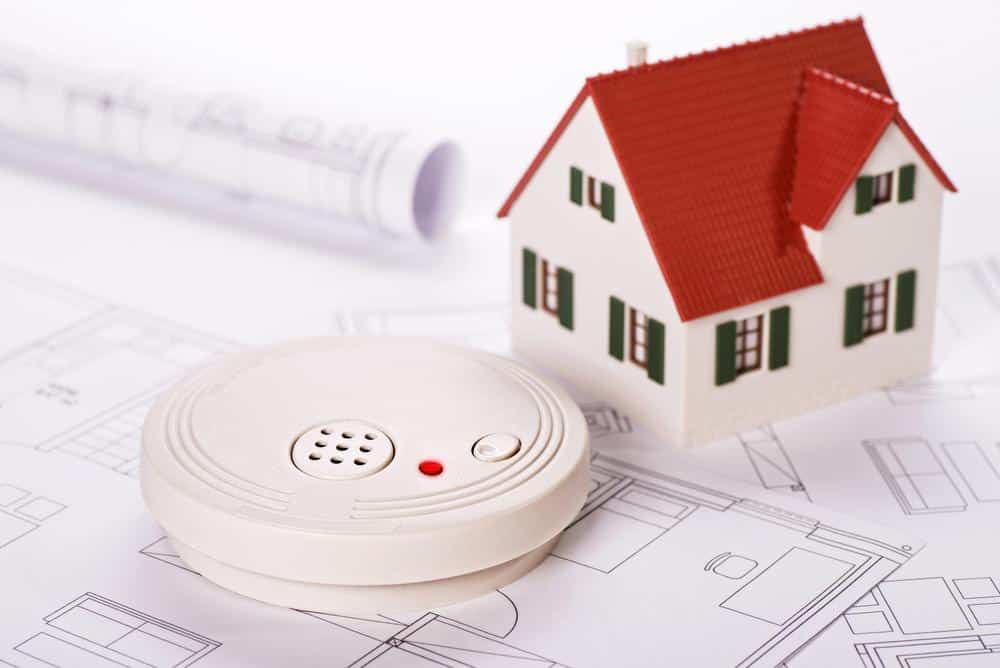Every building, from residences to commercial office spaces to industrial areas, should be equipped with proper fire and carbon monoxide (CO) alarms. The exact model and placement depends highly upon location, as there are many different kinds of fire detection devices. However, it is essential that you have these devices on site and properly installed. You never know when a fire or CO leak might happen, and you need to know as soon as possible once it does.
Combination Alarms
Kidde fire alarms and other major brands offer a great many different fire alarm devices that you can choose from. You may wish to consider combination smoke/co alarms from a well-known manufacturer if you want to save space and keep everything to one simple device. This type of fire detector picks up smoke and sends one alarm in case of fire, but it can also detect the colorless and odorless gas known as carbon monoxide and send out a different alarm when that is present. If you choose to get a combination smoke and carbon monoxide detector, you should make sure that you familiarize yourself with the sound of the alarms so you can react quickly. The protocol for fire and carbon monoxide both involve getting out of the building, but the details of that evacuation can change depending on the threat.
Battery-Powered Alarms
Most people who choose a smoke and carbon monoxide alarm opt for a battery-powered option. This is generally an affordable but effective choice. Rather than being a fixed part of the structure, the alarm is mounted on brackets that are attached to a wall or ceiling. You need to replace the batteries for these alarms every six months or so and test them regularly to make sure that they are in good working condition. While these alarms are very affordable, the downside is that human error can lead to their failure. Forgetting to replace the batteries on a regular basis can lead to them not working when you need them the most.
Hardwired Alarms
To minimize problems caused by a dead or improperly installed battery, some people opt for hardwired smoke and CO detectors. This type of alarm is wired directly into the electrical grid and thus does not run out of batteries. It does have a battery backup in case a fire causes the power to fail, and you should make sure to keep a fresh battery in the backup just in case. However, the risk of that battery going dead is significantly lower than with a battery-powered alarm. While hardwired alarms are more reliable, they do require a higher cost up-front. The type of alarm is more expensive, and you should have a professional electrician install it.
Maintenance Tips
You should put a piece of tape on your alarms the next time you change the batteries. Write the date on the tape and you’ll never forget when they need to be replaced. Fire/CO alarms don’t last forever, so write down the date the units need to be replaced too. Even if they still work when you press the button, it’s dangerous to use one longer than specified by the manufacturer.
It’s also very important to vacuum/dust off your alarms at least every 6 months. They need to be kept free from dust particles to help reduce the number of false alarms you need to deal with. It’s crucial to ensure smoke and gas can reach the internal sensors too. If there is too much debris preventing this from happening your alarms might not work properly in emergencies.
Fire/CO Alarm Placement
It’s a good idea to contact a professional to find out exactly how many fire/CO alarms you need. You should have at least one alarm on each level of your building, including the basement. A fire alarm should be placed in every room you sleep in and should be placed in rooms with electrical appliances that can catch fire easily. CO detectors should be placed in every room you sleep in and an alarm should be placed in every room with a fuel-burning device that can leak carbon monoxide.
Make sure you can hear the alarms no matter where you are in a building. In areas with heavy machinery, it could be difficult to hear an alarm that’s too far away. Some buildings, like music studios, might have soundproof rooms where it’s more difficult to hear alarms. If alarms are placed outside bedrooms, you must be able to hear the alarm sounding when the door is closed.
Every building should have smoke alarms and carbon monoxide detectors. In many cases, you can combine these two hazard detection systems into one easy-to-maintain unit. Choose the detector that fits your space best and make sure to test it regularly so it is in proper working condition when an emergency arises.


